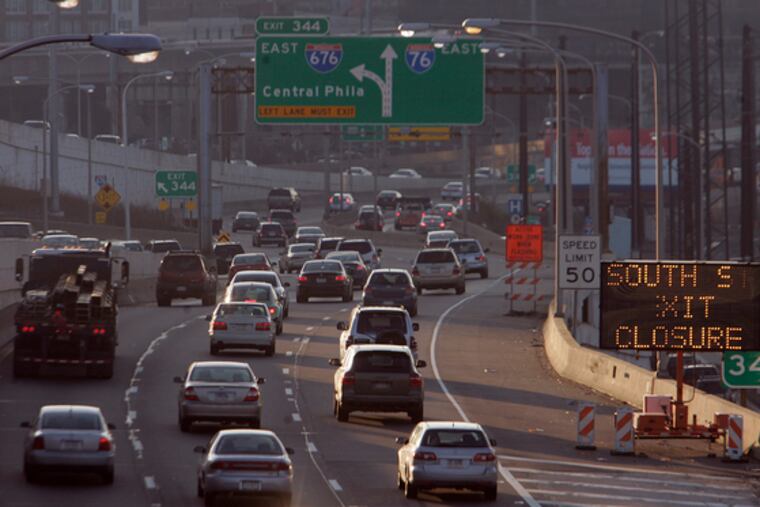Clean car standards are good for Pennsylvania businesses and consumers | Opinion
IKEA sustainability manager and Ceres transportation director: As representatives of business, we’re standing up to protect clean car standards from a threatened rollback.

Today, national and state fuel efficiency and vehicle pollution rules—known as clean car standards—are reducing harmful air pollution and saving fuel costs for Pennsylvania residents and businesses. Despite the many benefits, these popular fuel efficiency standards are under attack in our nation’s capital, while states like Pennsylvania are stepping up to protect current standards.
The data and science are clear: the proposal to lower miles-per-gallon targets for cars and take away the rights of states to adopt stronger clean car standards would stifle economic growth, threaten jobs, harm the health of our communities and environment, and cause Pennsylvanians to spend more at the pump.
As representatives of business, we’re standing up to protect these standards because they help the economy grow and enhance the lives of employees, customers and their neighbors—particularly those who can’t afford to spend more at the pump, or whose health is particularly vulnerable to increased air pollution. That is why IKEA US stands with other major businesses, retailers, and manufacturers through the Ceres Business for Innovative Climate and Energy Policy Network in opposing the rollback.
Of particular concern is the federal government’s plan to eliminate the rights of states to set their own tailpipe pollution standards, a critical portion of the Clean Air Act. For more than 50 years, states have had the right to adopt clean air standards that keep their workforce healthy, support cleantech innovation, and create jobs. Taking away that right would undermine Pennsylvanians’ health and increase business and consumer costs.
Right now, Pennsylvania’s emissions standards line up with national fuel economy rules that save people money on fuel. Pennsylvanians have already saved $1.2 billion at the pump thanks to strong national clean car standards. By 2030, each Pennsylvania household is expected to save an additional $1,650 if the standards and rights of states are protected. These savings can be invested into Pennsylvania’s economy, driving growth projected to create 26,400 new jobs across the state’s economy.
Conversely, the federal government’s own estimates show a loss of 60,000 jobs if the standards are rolled back. Another recent report shows billions in lost economic growth for the U.S economy. Rolling back these standards would also squander the opportunity to enhance the global competitiveness of the U.S. auto industry and the more than 30 auto supplier facilities that make clean vehicle technologies in the Keystone State. An economic analysis commissioned by Ceres and conducted by independent automotive industry analysts found that the current standards would boost industry suppliers and protect against future gas price spikes. If the standards are rolled back, auto suppliers, in particular, would feel the impacts—and suppliers employ two and half times more Americans than U.S. automakers themselves.
Businesses recognize that climate change poses significant long-term risks to the health of our communities, our businesses, and the global economy. According to the EPA’s 2016 analysis, the vehicle standards currently in place will save approximately 540 million metric tons of greenhouse gas emissions and reduce oil use by 1.2 billion barrels nationally by 2025, helping us avoid the worst impacts of climate change and air pollution. These benefits are especially important to Pennsylvania’s urban areas. In the latest American Lung Association’s State of the Air report, Philadelphia and Allegheny counties received an F grade for worst in ozone air pollution.
We all need to do our part to tackle climate change and preserve public health. That’s why IKEA works with other businesses to support smart climate policies, and why we have committed to achieve 100 percent zero-emission home deliveries by 2025 in cooperation with our service providers, provide electric vehicle charging at our stores, and aim to reduce emissions from customer and co-workers traveling to IKEA by 50 percent come 2030. We do this not only because it is the right thing to do, but because it makes business sense. Armed with this experience, our teams at IKEA and Ceres are working to decarbonize Pennsylvania’s transportation sector and make the region a bright spot for electrification.
Pennsylvania is working with eight other states and Washington D.C. to establish a regional program to reduce emissions from the transportation sector. This partnership will spur new job growth and innovation while curbing pollution throughout the region.
With the federal rollback expected this spring, we will continue to look for opportunities like these to protect public health and our economy—both here in Pennsylvania and nationwide. We will also fight to protect current federal standards and to maintain states’ rights to ensure clean air and fuel cost savings for their citizens and businesses.
Lisa Davis is Sustainability Manager at IKEA, a global home furnishings retailer with U.S. headquarters in Conshohocken. Carol Lee Rawn is senior director for transportation at Ceres, a nonprofit organization working with investors and companies to build leadership and drive solutions throughout the economy.